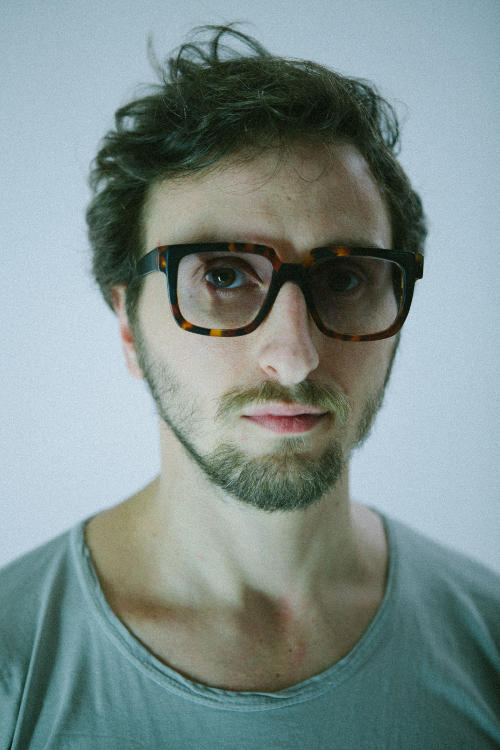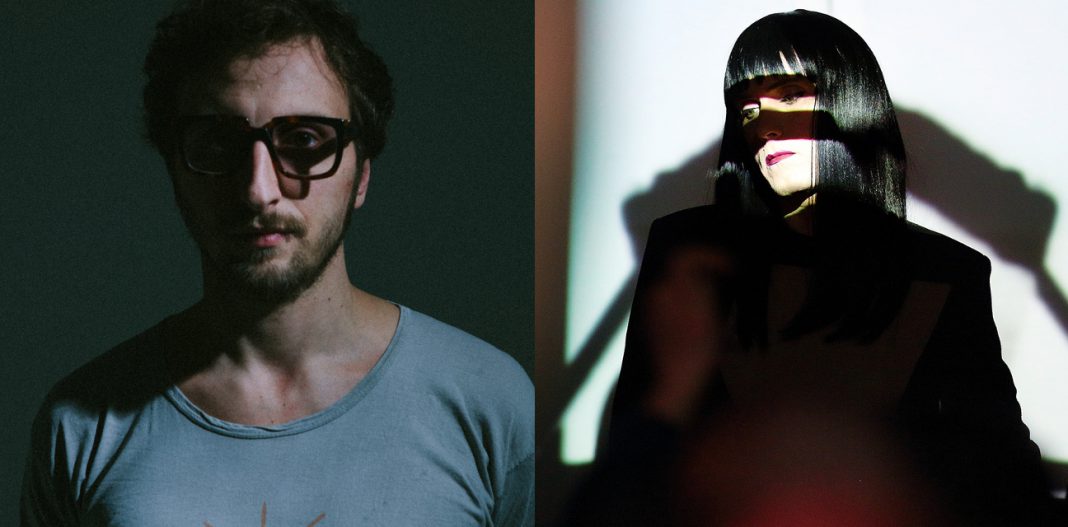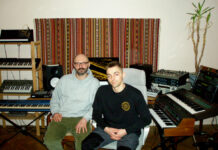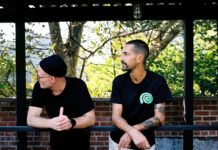Were you satisfied with the national and the international recognition you received with your music? In current terms it seems quite moderate.
Seth: The first time I was able to go to Europe and perform was already more than I ever expected to get out of music. I think for the last twenty years I continued to feel that way. I still feel very surprised that people fly me around to do music.
Why did the scene in the San Francisco Bay Area collapse so quickly?
Seth: I might not agree that it collapsed.
Sure. But there have been much less releases after 2002 and some producers quit music altogether.
Seth: Yeah, well. People started moving away from the Bay Area. Some of the producers got into other things. As I said, things changed more quickly back then. The period of time with a scene of people was only three or four years. We all still know each other, but we just have gone our separate ways in some cases. And in some cases we linked up again over the years. Like I said, we never wanted to make it into a scene or a movement. That is something journalists normally do. And listeners and DJs hear stuff and group it together when they know it comes from a certain place. We weren’t coming up with a name for ourselves or market ourselves as some kind of unit. We didn’t think about it in those terms.

Lucy, you seem to be more of a solitary man, at least in your early days. Under what circumstances did you start producing music? How did you feel about the music that was happening back then?
Lucy: My experience was really different. Where I grew up, there was absolutely nothing like a scene. I lived in Palermo on Sicily, where underground electronic music was something almost unheard of. It’s really by random chance that I got in touch with it. There was this very little record shop called Clash close to my place. It was run by this guy who was one of the few people back than who were traveling to London and Berlin to get new vinyl. My first contact with dance music was Dub. At my first gig I play 7-inch-singles on a beach. It was a completely different dimension. When I started experimenting and mixing Roots Dub from The Black Ark Studios with something completely different, like early Warp records, I felt very satisfied. When I moved to Sienna to study at the university, we started throwing parties there. I was playing a really wide range of things that people normally would not connect. From Nightmares on Wax to Basic Channel to Lee Perry and King Tubby, do you know what I mean?
How did it work for the crowd?
It worked amazingly actually. Intellectually speaking, the whole scene around the university of Sienna was anarchic and in a lot of cases very leftist. The attitude towards life was really: we want something different. We don’t like what we have around us. We were full-on into the early Berlusconi era, and there was even something political about our parties. We felt as if we were in this very lucky niche. We were also protected by the university. The universities were actually one of the few institutions that were working against the panorama that was shaped at the time. When I moved to Paris three years later, I felt much lonelier with the music that I was making.
Did you start producing music in Paris?
Lucy: I started producing music when I was fifteen along with the DJing. In my productions, there had always been very experimental electronics, like Ambient, drones, a lot of mangling of field recordings and a lot of pure synthesis. When I was in Paris, I had the feeling I was completely detached from my roots. I was really alone. There were a few years when I and my music were completely isolated from the whole planet. (laughs)
Stream: Lucy & Rrose – Stained Glass
Did you check out the Paris club scene with places like Rex?
Lucy: I went to Rex sometimes, but it was not something I was really interested in. I got into actual Techno very late, only when I moved to Berlin. Once again, politics were always something important to me. When I was in Paris, it wasn’t a lucky moment politically as well. It was the Sarkozy era, when many clubs were shut down. Then I checked Berlin and I immediately understood that my music resonated much more with this city. I had a stock of unreleased tracks and, moving to Berlin, I started setting up the label. With the label it was not just me establishing myself and all the artists but also the label teaching me some discipline in music making. I got this code, and I wanted to play with this code. I wanted to dive deep into certain archetypes. Those archetypes that make you say: this is Techno, this is dance music. If you start working on those archetypes and start folding them without breaking them results are really interesting. This is why I always felt pretty much like a fish out of water in the scene. This feeling of being a complete outsider only came down with a pretty intense touring schedule. When I was touring for the first time, I did not know how to relate to the other artists, to the labels or to the bookers. In the beginning, I did not even understand all that interest in my music.
It is amazing that a musician that is an outsider to the scene to a certain extent is still able to be part of the scene. I think about eight years earlier when Seth came out as a musician, it was a very different situation.
Lucy: It is a beautiful thing that it is possible to make a life out of music without going too much into compromises. But I sadly think there was something much more valid going on in Berlin a few years ago. I consider myself lucky to have built my structure when it was still possible. Now I see people struggle who moved to Berlin more recently, even if they have great ideas. It is like there is no space. From the metaphorical panorama in the music and in the clubs to the physical space in the city. How fucking difficult it is to find a flat in Berlin! And this is not a secondary element. I was completely broke when I moved here. The music was not even the first reason. With the little money I had I could live much easier in Berlin than in Paris. That was my roughly my path.





